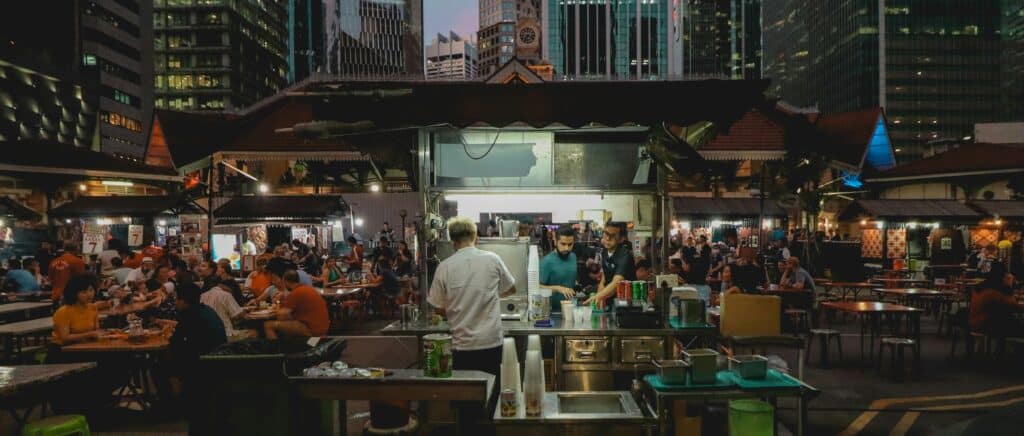Singapore is a renowned country with modern structures, perfect infrastructure and good economy that make it common among foreigners and tourists. In case you are moving for the purpose of employment, studying in another country or just looking for new options it is important to know the cost of life in Singapore. This article will provide information on the expenses people incur while in Singapore as well as how they compare to other major cities worldwide hence giving you an all-inclusive idea of what to look forward to.
Overall affordability
Despite the fact that the city-state is resident to quality life, staying in Singapore comes with a hefty price tag. Some of the key factors responsible for high living costs in this dynamic country are:
• High Cost of Living: Daily expenditures, especially on housing and utilities are much higher when compared to many other countries.
• Safety and Cleanliness: This has made Singapore’s streets clean and lowered its crime rate, resulting in security and healthy living conditions.
• Economic Opportunities: Given its strong economy, Singapore has lots of jobs mainly in finance, technology or healthcare sector.
However, it is important to take into account personal lifestyle preferences as well as situations before making conclusions on whether a place is affordable.
Cost breakdown
Let’s explore the major expenses you can expect while living in Singapore:
Housing
Housing is the most substantial expense in Singapore, with prices varying widely based on location and property type.
• Central Singapore: In prime areas like Orchard Road and Marina Bay, rental prices for a one-bedroom apartment range from SGD 3,500 to SGD 7,000 per month. Larger apartments can cost upwards of SGD 10,000.
• Suburban Areas: In areas like Woodlands and Tampines, rents are more affordable, ranging from SGD 2,000 to SGD 4,000 per month for a one-bedroom apartment.
• Public Housing: The government’s Housing Development Board (HDB) flats offer more affordable options, with rentals starting around SGD 1,200 per month.
• Utilities: Monthly costs for electricity, water, and gas typically range from SGD 150 to SGD 300, depending on usage and apartment size.
Food
Whether you buy your food or eat out, the cost can vary in Singapore.
• Groceries: If a single person buys both local and imported products at an average of $300 to $500 per month. Fresh produce, meats and other essentials can be found in local markets and supermarkets.
• Hawker Centers: This is definitely budget option. A meal costs between S$3 and S$6. These centers are known for cheap local food that varies widely.

• Restaurants: The price per person ranges from SGD 20-40 in midrange to over SGD 100 in high-end restaurants. There is no shortage of international cuisine and upscale dining experiences; however, they come with a price tag.
Transportation
Singapore boasts an efficient public transportation system, but costs can add up depending on usage.
• Public Transport: A monthly pass for unlimited travel on buses and MRT costs around SGD 120. The MRT (Mass Rapid Transit) and bus networks are extensive and reliable, making them the preferred mode of transport for many residents.
• Taxis/Grab: Taxi fares start from SGD 3.50, with additional charges based on distance and time. Grab, the ride-hailing app, offers rides starting at approximately SGD 6. Taxis and Grab rides are convenient but more expensive than public transport.
• Car Ownership: Owning a car in Singapore is expensive due to the Certificate of Entitlement (COE) system. The COE can cost tens of thousands of dollars, in addition to the car’s price, road tax, insurance, and fuel costs.
Healthcare
Singapore offers excellent healthcare services through both public and private providers.
• Public Healthcare: Singapore’s subsidized healthcare is available to residents through the MediShield Life scheme. Costs are relatively affordable with subsidies, and public hospitals and clinics offer high-quality care.
• Private Healthcare: Private hospitals and clinics provide faster service and more comfort, but at a higher cost. Comprehensive private health insurance plans range from SGD 200 to SGD 600 per month, depending on age and coverage. These plans often include access to private medical facilities and specialists.
Education
Education in Singapore is highly regarded, with a mix of public and private institutions.
• Public Schools: Local public schools offer high-quality education at minimal cost, primarily catering to Singaporean citizens and permanent residents.
• International Schools: Tuition fees for international schools range from SGD 20,000 to SGD 40,000 per year. These schools follow various international curricula and are popular among expatriates.
• Universities: Tuition fees at local universities vary from SGD 8,000 to SGD 15,000 per semester for international students. Singapore is home to several world-renowned universities and offers a wide range of programs.
Additional expenses for students include:
• Accommodation: On-campus housing costs around SGD 600 to SGD 1,200 per month, while off-campus housing can exceed SGD 1,500.
• Living Expenses: Students should budget SGD 500 to SGD 800 per month for books, meals, and daily expenses.
• Health Insurance: Mandatory health insurance adds approximately SGD 300-500 per year. University health plans often provide coverage for medical consultations, treatments, and emergencies.
Cost of living comparison
A comparison between Singapore and major cities in the United States illustrates the differences in living costs.
| Cost of living category | Singapore (SGD) | United States (USD) |
| Rent (one-bedroom apartment) | 3500-7000 (2590-5180 USD) | 1000-1500 (1370-2055 SGD) |
| Groceries (per month) | 300-500 (221-370 USD) | 300-400 (410-545 SGD) |
| Transportation (monthly pass) | 120 (88 USD) | 100-150 (137-205 SGD) |
| Healthcare insurance (per month) | 200-600 (147-444 USD) | 100-200 (137-275 SGD) |
| Exchange rate | 1.36 | 1 |
As shown, living costs in Singapore are generally higher, though the city-state offers a high standard of living and numerous amenities.
Additional considerations
Here are some factors to consider when evaluating the cost of living in Singapore:
- Lifestyle Choices: Going local on housing and food can make a significant difference in the budget, as against luxury options that could be higher. A simple life can mean a lot on your overall budget.
- Currency Fluctuations: Changes in value of Singapore dollar (SGD) against other currencies have an effect on expatriate purchasing power. Thus staying aware of exchange rates and dealing with currency conversions may help in making effective budgets.
- Visas and Immigration: Different visas for long term stay in Singapore attract associated fees and requirements. Ensure you know the visa application charges, renewal procedures, as well as other costs linked to your stay.
- Savings and Investments: It’s a good place to save or invest with multiple financial products made available by Singapore. Check out local banking alternatives, investment opportunities, retirement plans etc., so as to improve your solvency status.
- Social and Cultural Life: The diversity of cultures within it offers numerous activities ranging from visiting museums, cultural festivals, having nightlife to going to nature reserves; hence differentiating between entertainment and social spending might enhance your experience while living in this city-state.
Singapore albeit expensive is still highly sought after because of safety, economic opportunities that exist here alongside quality life. This guide intends to aid you understand more about financial side of dwelling in Singapore thus enabling you to come up with informed choices while enjoying your stay at this vibrant city.
